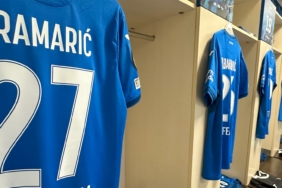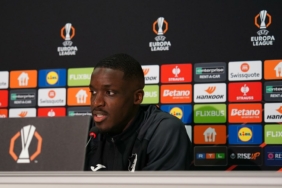All the participants in the discussion round were in agreement: football can serve as a positive example for society and the economy. “Beyond the pitch: the future of football”, was the headline for the panel discussion, in which TSG managing director Jan Mayer, Stefan Mennerich (Bayern Munich), Horst Heldt (Union Berlin) and Kai Rippe (Sportfive) talked for almost an hour about their work in professional football with regards to data, digitalisation, AI and new content and event formats.
“We’ve always said that we, as a village, have to act differently to keep up with the big boys. We’ve been doing that for 17 years now. And we’ve been able to do that because we’ve always strongly believed that you can gain a decisive advantage with data,” said Mayer. Twice a year, the players at TSG, from the youth to the women’s and men’s teams, are thoroughly checked and “digitally measured.” ‘This is not about creating a “transparent player”, but rather about understanding exactly what we need to work on with the players to help them improve. This is how potential can be successfully identified and developed,” explained Mayer.
Meanwhile, many other clubs are also working intensively with data and technological tools. But from Mayer’s point of view, TSG already has an advantage. “We’ve been doing it this way for 10 years now. That means we now have standardised data and can find out exactly who is particularly good in which areas and where they still have potential, which we then develop in a targeted manner.” Mayer sees a major challenge for the future, both for football and for society as a whole: “Digitalisation is changing almost everything. We also use AI, for example, to handle the wealth of data. But in the end, it’s about people, and the young target group in particular wants to be addressed individually and personally. The digital possibilities and technologies can help us to connect with each other as people. These opportunities must be seized in professional football as well as in society.”















